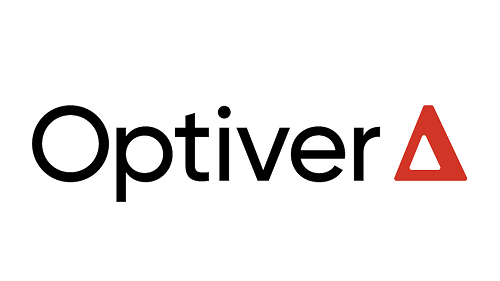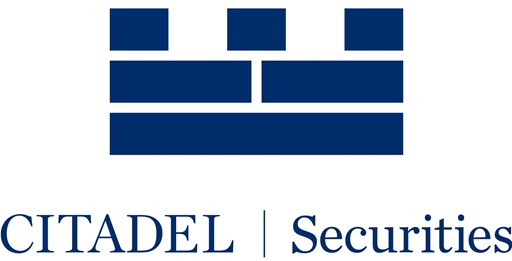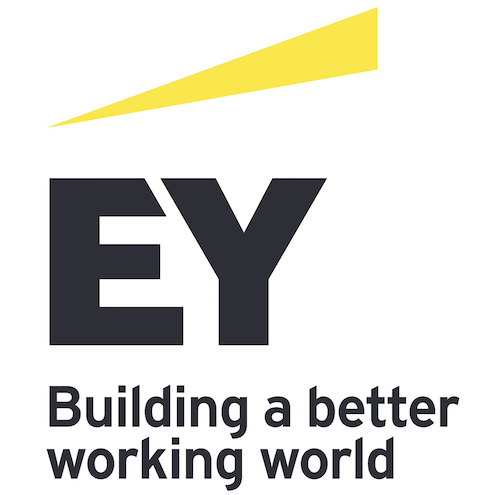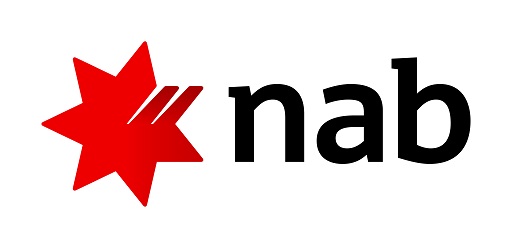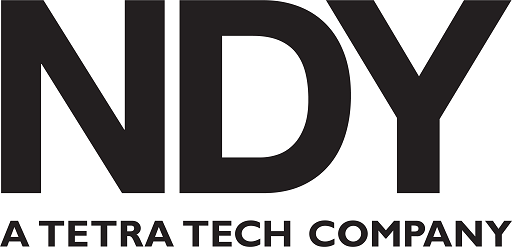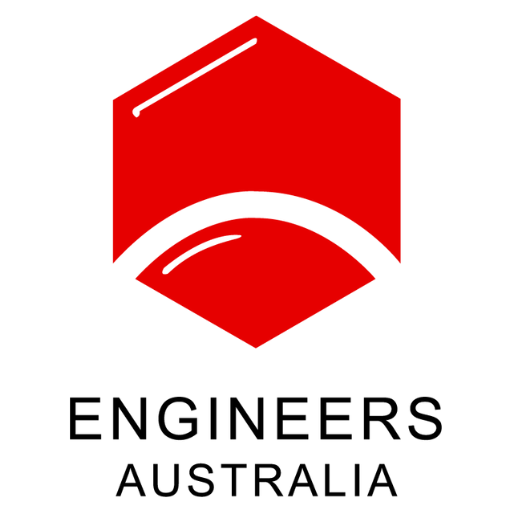Graduate Jobs
Sydney
Accepts International
Gain real work experience and exposure across different Engineering areas. Work on real world problems and projects that impact our customers. Be supported by buddies and mentors, have access to senior leaders and technical specialists, with a permanent role guaranteed at the end of program.
Graduate Jobs
Melbourne
Accepts International
Gain real work experience and exposure across different Engineering areas. Work on real world problems and projects that impact our customers. Be supported by buddies and mentors, have access to senior leaders and technical specialists, with a permanent role guaranteed at the end of program.
Graduate Jobs
Brisbane
Accepts International
Gain real work experience and exposure across different Engineering areas. Work on real world problems and projects that impact our customers. Be supported by buddies and mentors, have access to senior leaders and technical specialists, with a permanent role guaranteed at the end of program.
Graduate Jobs
Available locations
- Regional New South Wales
- Sydney
Accepts International
Vacancies are open for September 2024 commencement in Austinmer, NSW, Australia. International applications are accepted year-round.
Graduate Jobs
Sydney
Accepts International
Our Traders identify opportunities in major financial markets around the world and take calculated risks. We succeed together in a team environment that facilitates close collaboration between Traders, Quantitative Researchers, and Technologists.
Graduate Jobs
Sydney
Ready to accelerate your career in a global tech-driven trading firm? Want to work alongside talented peers to solve complex and challenging problems every day? Optiver's Quantitative Trader Graduate program will empower you with the skills needed to excel in our fast-paced environment.
Graduate Jobs
Available locations
- Melbourne
- Sydney
Amazon which is one of the most recognizable brand names in the world and we distribute millions of products each year to our loyal customers. to support this, our operations/logistics teams are seeking Graduate Area Managers - Operations/ Logistics
Graduate Jobs
Sydney
SIG is looking to add an FPGA Engineer to our technology team. The candidate will be required to design and implement hardware-accelerated solutions for SIG
Graduate Jobs
Available locations
- Adelaide
- Brisbane
- Canberra
- Melbourne
- Perth
- Sydney
Join us full-time as an engineering graduate and let's shape your bright future together. We're committed to nurturing your career with continuous support, learning opportunities, and dynamic experiences.
Graduate Jobs
Available locations
- Adelaide
- Brisbane
- Canberra
- Melbourne
- Perth
- Sydney
Make an impact through your work. Grow your skills and knowledge. Embrace the real you. Take your first step to a purposeful career with Accenture.
Graduate Jobs
Available locations
- Melbourne
- Sydney
Your best begins here - Choose a career that lets you explore your own road to success. Join the NAB Graduate Program in 2026! You'll have the opportunity to do real work, accelerate your development and build networks that last a lifetime.
Graduate Jobs
Available locations
- New South Wales
- Regional New South Wales
- Sydney
Hires applicants with degrees in
- Engineering
- Engineering Aerospace/Aeronautical
- Engineering Chemical/Processing
- Engineering Civil/Structural
- Engineering Electrical
- Engineering Environmental
- Engineering Geotechnical
- Engineering Mechanical
- Engineering Mechatronics
- Engineering Petroleum
Tamworth Regional Council Tamworth, New South Wales
Graduate Jobs
Available locations
- North Sydney
- Sydney
Hires applicants with degrees in
- Engineering
- Engineering Civil/Structural
- Engineering Mechanical
CIMIC Group invests in future leaders by providing graduates with exposure to a global organisation across multiple industries. The CIMIC Group graduate program gives graduates the opportunity to learn and develop while working on some of the world’s most iconic construction projects.
Graduate Jobs
Available locations
- New South Wales
- Regional New South Wales
- Sydney
Hires applicants with degrees in
- Engineering
- Engineering Aerospace/Aeronautical
- Engineering Chemical/Processing
- Engineering Civil/Structural
- Engineering Electrical
- Engineering Environmental
- Engineering Geotechnical
- Engineering Mechanical
- Engineering Mechatronics
- Engineering Petroleum
Clarence Valley Council Clarence Valley NSW, NSW
Graduate Jobs
Available locations
- Adelaide
- Regional South Australia
- South Australia
Hires applicants with degrees in
- Engineering
- Engineering Aerospace/Aeronautical
- Engineering Chemical/Processing
- Engineering Civil/Structural
- Engineering Electrical
- Engineering Environmental
- Engineering Geotechnical
- Engineering Mechanical
- Engineering Mechatronics
- Engineering Petroleum
Wakefield Regional Council Balaklava, South Australia
Graduate Jobs
Wellington
Hires applicants with degrees in
- Engineering
- Engineering Electrical
- Engineering Mechatronics
The Graduate Maintenance Engineer has a central role in the Signalling Maintenance Operations and this role will be responsible for the technical support, methods and analysis of everyday railway system operations.
Graduate Jobs
Available locations
- Auckland
- Wellington
Hires applicants with degrees in
- Engineering
- Engineering Civil/Structural
- Engineering Electrical
- Engineering Mechanical
Discover exciting opportunities with Jemena & Zinfra's 2025 Graduate Program! Be part of Australia's dynamic energy landscape, shaping the future through innovation and collaboration. Apply now to embark on a rewarding journey of growth and development!
Graduate Jobs
Melbourne - CBD and Inner Suburbs, AU
Hires applicants with degrees in
- Engineering
- Engineering Civil/Structural
- Engineering Electrical
Our graduate program is engineering focused and has been developed to support you in the early stages of your professional journey and provide you with the essential skills needed for a successful career. The program offers a unique opportunity to start your career in the renewable energy industry.
Generalist Jobs
Generalist jobs accept a wide range of disciplines including Engineering
Graduate Jobs
Available locations
- Adelaide
- Brisbane
- Melbourne
- Perth
- Sydney
Hires applicants with degrees in
- Engineering
- Engineering Chemical/Processing
- Engineering Civil/Structural
- Engineering Electrical
- Engineering Environmental
- Engineering Mechanical
- Engineering Mechatronics
- Engineering Petroleum
- Engineering Software
With over 100,000 members, Engineers Australia membership is recognised world-wide and can help open doors via its network and reputation. Students looking to start their engineering career through professional development, support and industry connections should apply for membership today.
Graduate Jobs
Available locations
- Brisbane
- Melbourne
- North Sydney
- Sydney
Hires applicants with degrees in
- Construction
- Engineering
- Engineering Chemical/Processing
- Engineering Civil/Structural
- Engineering Electrical
- Engineering Geotechnical
- Engineering Mechanical
CIMIC Group invests in future leaders by providing graduates with exposure to a global organisation across multiple industries. The CIMIC Group graduate program gives graduates the opportunity to learn and develop while working on some of the world’s most iconic construction projects.
Engineering Graduate Jobs and Programs
Engineers solve real world problems using scientific principles. Engineers are involved in almost all areas of industry, from the innovation, design and construction of products, software and systems to the building of roads and public buildings.
What do you need to know to get a job in engineering?
Areas of Engineering Study
There are a multitude of engineering disciplines available to study. Different universities teach different disciplines. Since there are so many engineering disciplines no university has the resources to teach them all. UNSW and Monash University each offer over twenty types of engineering disciplines, while smaller universities like Charles Sturt will offer a more limited selection.
The most common disciplines in the job market are:
- Civil/Structural
Civil engineers design and construct public structures, such as bridges, roads and buildings. Structural engineers design and analyse structural components and systems to optimise efficiency, human safety and comfort. A subset of civil engineering, they are typically involved in the creation of buildings, ships, satellites and oil rigs. - Mechanical
Mechanical engineers are involved in the design, production and operation of machinery. - Electrical
Electrical engineers utilise electrical technology and circuitry to generate and distribute power, and control machines. - Electronic
Electronic engineers use electricity and electrical devices such as computers, integrated circuits and radar to process information and send communications. - Mechatronic
Mechatronic engineers apply electronic, mechanical, computer and control systems knowledge to product design and construction. They are involved in the creation of “smart” electronic products, robots and automotive systems. - Chemical
Chemical engineers design and operate industrial plants, transforming raw chemical materials into usable products such as foods, pharmaceutical ingredients, cosmetics and fuels. - Mining
Mining engineers construct and operate mines to extract and process minerals such as coal, iron and uranium. - Biological
Biological engineers apply engineering principles to biology to create solutions to various problems. These range from biomedical solutions (such as bionics and prosthetics), biomimetics (studying the way living things work in order to better engineer machines) and biological systems analysis. - Aeronautical
Aeronautical engineers design and construct aircraft like planes and helicopters. - Environmental
Environmental engineers work to improve and preserve the natural environment using science and engineering principles. They are instrumental creating in renewable energy solutions, pollution remediation schemes and improving water systems. - Software
Software engineers design, write and test computer programs and systems.
However, there are many more specialisations available at select universities (for example RMIT specialises in aerospace engineering). The more specialised or niche a discipline, the smaller will be the job market, but highly qualified, experienced and work-ready graduates will always be in demand.
Industry Experience
Industry Experience is essential for the completion of the four year Bachelor of Engineering degree required to become a professional engineer.
Practical experience usually takes the form of 60-80 days’ work experience or internship in an industry related to your engineering specialisation. This can be taken spread out in several placements over a year, or done all at once in a vacation internship. Some universities (like RMIT) offer special industry training programs, including possible overseas experience with partner companies, while others (like UNSW) expect you to organise your own industry experience. Regardless, these programs give engineering students the opportunity to apply their academic knowledge and skills in the real world, develop their communication skills and learn how engineers interact with professional organisations.
Some universities such as Monash University will, in addition to an industry training program, offer further professional development programs teaching “soft skills” (such as communication, teamwork and leadership) that will help to increase a student/graduate’s employment value.
Membership of Engineers Australia

Any current tertiary student of engineering is eligible for free membership of Engineers Australia. Membership conveys many career benefits, including professional development, networking opportunities, a vast array of resources and technical information; and international recognition.
Macroeconomic trends:
The state of the Australian dollar has significant implications for the job opportunities and salaries for engineers working in export industries such as manufacturing, mining and agriculture.
A low dollar increases Australia’s competitiveness in the global export market, which in turn boosts profits for Australian companies. Job opportunities can be expected to increase in these engineering sectors as major companies such as BHP Billiton and Bluescope Steel look to expand and capitalise on the low dollar. With the increased demand salaries will also increase at a higher rate than usual.
Conversely a high Australian dollar will negatively impact upon the Australian export market, and demand will flatten for engineering graduates. Salary increases will also decline. A cautious market will cause companies to shift focus towards hiring short-term or project based contractors. At the same time, workers increasingly seek workplace flexibility, showing willingness to relocate for business or undertaking “fly-in, fly-out” projects in regional areas.
Government investment in industry and public projects (such as roads, construction and logistics) will increase demand for civil, mechanical, environmental and structural engineers, however recent job cuts to the public service in all states will increase competition between rising numbers of job seekers.
Demand for construction engineers will be high in areas recovering from natural disasters such as flooding, fire and hurricane.
Engineer Graduate Work Prospects and Salary Averages
Across Australia, demand for highly qualified engineering graduates with relevant industry experience remains high, and thus an engineering graduate can expect a high starting salary. Hiring organisations include contractors; consultants; construction companies; goods, vehicles and parts manufacturers; agricultural companies; transport and power providers, and the defence force.
Demand for mining engineers is highest in resource-rich Western Australia, Queensland and South Australia, while the major cities of Sydney and Melbourne continue to demand electrical, civil and structural engineers. In comparison, the Northern Territory, Tasmania and the ACT have smaller job markets for engineers, however recent renewable energy schemes in Canberra drive demand for environmental engineers.
Salary estimates vary depending on source, location and organisation. The Australia Government’s Workplace Equality Agency gives the 2012 engineering graduate median starting salary as between $63-64k, while the Kelly Services Guide 2013 gives a wider range of starting salaries from $50-85k depending on sector, and the Engineers Australia 2013 Professional Remuneration Summary Report gives the average starting salary as $59.5k. Yearly salary increases range from 3.4-3.9% for mechanical, civil and electronic engineering, 4.4% for computer systems engineers and 5.4% in the resources sector.
Undergraduate engineering experience commands a lower rate of pay than graduate work. A second- year engineering student may be paid at 40-60% the rate of a graduate engineer in the same field. In the same trend, a third-year student typically will earn 60-80%, while a final-year student will earn 80-100%. An undergraduate may also seek unpaid work experience.
Benefits:
Graduate Engineers receive mentoring and training as part of their professional development and high-achieving employees may command performance bonuses. Depending on the organisation hiring and the nature of work, they may also be offered free or discounted travel to rural or international work locations.
